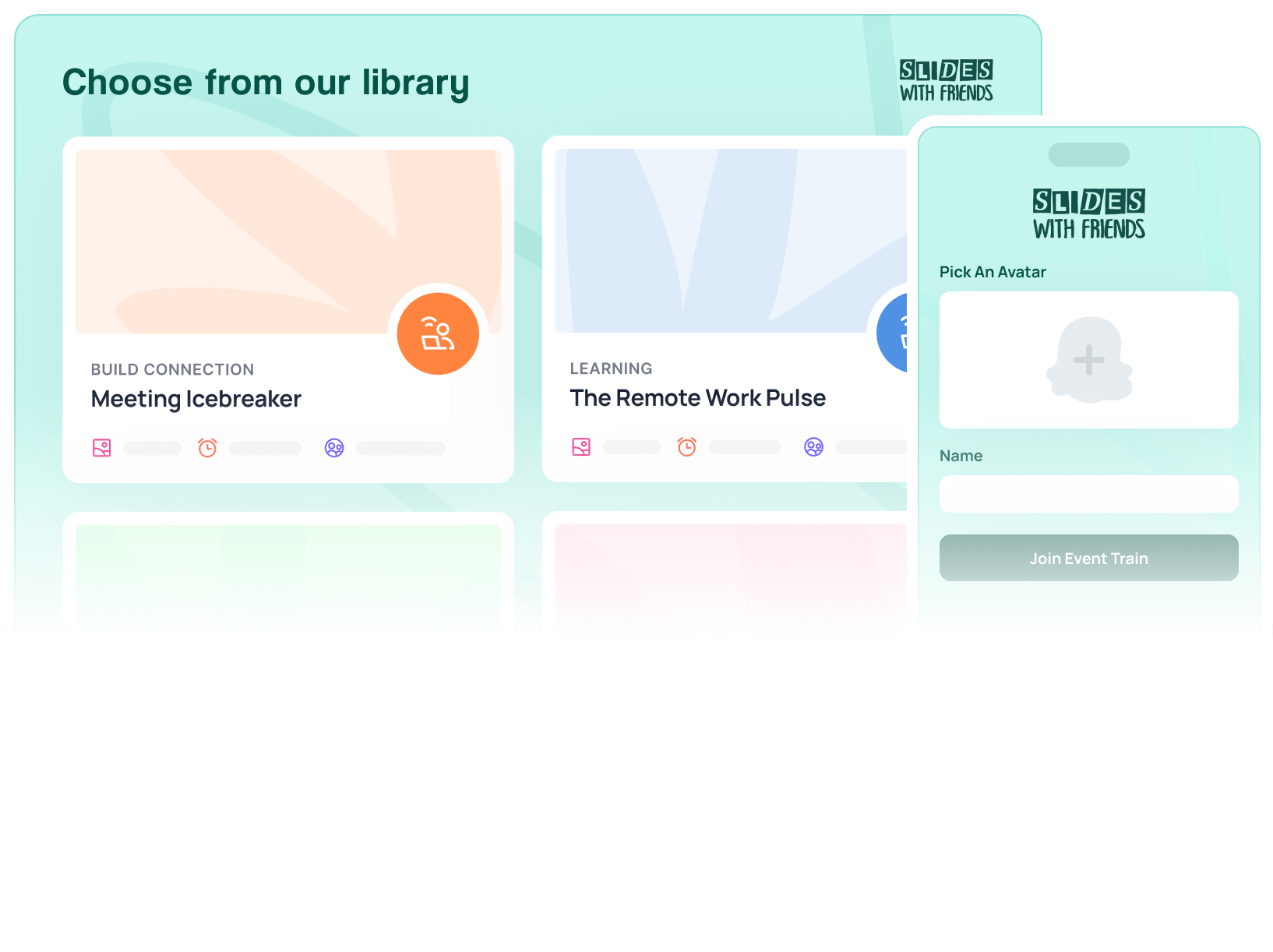14 Great Review Games to Engage Your Classroom
Take your classroom reviews to the next level, while also boosting classroom engagement, with these 14 review games.

Classroom engagement is key to a successful learning environment.
“Student engagement is the product of motivation and active learning. It is a product rather than a sum because it will not occur if either element is missing.”
― Elizabeth F. Barkley, Student Engagement Techniques: A Handbook for College Faculty
It's important for students to be active participants in the classroom, though we know how difficult it can be. One way to create energetic engagement, while also keeping students on task and helping them prepare for lessons or tests, is to use review games.
We've put together 14 different types of review games to keep your students engaged and learning!
Word Cloud Game
Word cloud games are an amazing way to have general review sessions with your students without putting any pressure on them to speak in front of the entire class. Word clouds also work great for teachers to get a general feel for areas where students might be struggling to understand.

Using our Word Cloud Game slide deck, you can create several prompts overviewing different areas the students need to study. For example, ask what the most difficult thing to understand was in a specific section. Or what they'd like to have explained again/in more depth.
Our word clouds allow students to make a response and also vote for one or multiple responses by the rest of the class. This will give you, and the students, a visual representation of what they'd like to learn more about or get more clarity on.
Deal or No Deal
While you might need to plan a bit ahead for this particular game, the engagement you'll get from your kiddos will be well worth it!
Pick 20 or 30 game 'events', or bonuses and penalties, which relate to your content. For example, adding points, subtracting points, bonus turn, lose a turn, etc. Write each event on the back of a post-it note and display them, numbered, on the board.
Divide the class in half and ask questions back and forth between each team. If the team answers the questions correctly in the allotted amount of time, they get to decide to get 1 point or to make a deal.
Students will take turns picking a card and reading it aloud. The team then decides together if the event is a 'deal' or 'no deal'. If it's a deal, the student keeps the card and gets the reward or penalty. If it's no deal, the student gets 1 point, like usual. The goal is to have the most points at the end of the game!
Scavenger Hunt
Scavenger hunts are such a fun way to get students up and moving around the classroom, while also learning! We especially love scavenger hunts for math reviews.
To create your own scavenger hunt, make numbered posters with 2 pieces of information on it: At the top, include the answer to a math question on another poster. At the bottom, place a new question, without the answer.

Create an answer sheet for yourself that includes all the station questions and answers.
Once you've created your posters, place them around the room. Divide your class into groups and place some at each station. Give the groups a set amount of time to complete each problem. After that time is over, give about 30 seconds for them to find the station with the answer for their previous question.
Students should continue until they're back at their original question!
These scavenger hunts can be as simple and short or complex and long as you want. And while math is a favorite topic for us, you can use the format for a wide range of subjects!
Word Ladder
Word Ladders are the perfect activity to go over vocabulary lists for older children or work on phonics for younger children. And, this review activity is super easy to plan and takes very little preparation.
To create the best word ladder review game, start with a word at the bottom of the ladder. Write that word in huge letters on a piece of chart paper or poster board. Then, write a new vocabulary word above it, changing only 1 letter of the first word. So, if your first word was 'cat', your second word could be 'cot'.
The goal is to make it all the way to the top of the ladder!
For a more complex word ladder, set a word at the top and bottom, with the goal being to find just the right combination to get from one word to the next.
You can create ladders for any content area, and they're perfect for a quick review at the end of a unit or before a test.
Word Jumble
If you want to review vocabulary, word jumbles are a great way to add a little fun to the process. While you are more than welcome to create your own word jumble, we highly recommend using a word scrambler.
Want to make your word jumbles even more accessible and create more interaction with your students? Use our Class Quiz slide deck and add in the jumbled words or phrases and have your student’s type in their answers on their phones.

While you can decide how many answers are shown in class (we don't recommend showing more than 5!), with our Pro Plan, you can save the data and see which students got the answers correct.
Jeopardy
Jeopardy is another one of those review games that may take a while, but is definitely worth the effort. Like the classic game show, pick 6 categories on things you're studying in the current lesson. For each category, create 5 questions going from easy to hard and worth different amounts of points - Starting at 100 and going to 500.
Play with the whole class or in teams. Students will choose a category and point value, then you'll read the question. The first person to buzz in gets to answer. If they're correct, they get the points! If they're wrong, they lose those same amount of points.
Bingo

Bingo is a review game with such versatility, we won't be surprised if it becomes one of your favorites. Bingo can be used for math, vocabulary, or (for younger students) learning sight words.
To create your bingo review game, start by creating a list of 25 math solutions, terms, or words you want to review, along with their answers or definitions. Write each term in a different box on a bingo card of 9 or 16 blocks (3x3 or 4x4). Or make the whole process easier and use a bingo card generator!
Then, using your answer sheet, give the math problem, vocabulary word definition, or show a picture of the sight word. Whichever student fills a row first, wins!
Headbands
The classic game headbands isn't just for games' night anymore! It's also a fun, giggle-inducing way to review for a class!
To start, write a review term on a post-it note and have students wear them as headbands. Each student must stick the note to their forehead without looking at it. Their goal is to figure out what the term on their forehead is.
For example, if one person has the word "Nectar" written on his sticky note, teammates would give them hints, such as a sugar-rich liquid that attracts pollinating animals, or something that a hummingbird drinks, until they guess the answer. If they can't guess in 20-30 seconds, they are out! The game is over when only one team has players left or when all terms have been guessed.
Trivia Competition
We love a good trivia game here at Slides With Friends, so you shouldn't be surprised to see a trivia game on our list of review games.
Our favorite slide deck for a trivia review is our Trivia Competition game.

What makes our trivia slide deck so amazing is it can be used for almost any subject. You have complete control over how it's customized - How long it is, what slides are included, and what questions are asked.
$10,000 Pyramid
If you're comfortable with a little chaos in your classroom, this is probably the review game for you.
To start, create a pyramid with space for 1 word on top, 2 in the middle, and 3 on the bottom. Add words, concepts, or phrases to these 6 blank spots, making a version for each round. Then, pair off your students and have them sit back to back. Have the first student start describing the first word at the base of the pyramid, giving hints to their partner until every word is guessed in bottom to top order.
The first team to get all 6 words or phrases wins! Then have the teams switch partners, with the student that had been giving clues now being the one to receive them.
Word Association Game

Another great way to have students learn their vocabulary words, while also getting their hearts pumping, is to play a word association game.
Give your students a list of vocabulary words and have them stand up. When you say a word, the first student to shout out a word associated with it gets a point. If they can't think of one, they sit down. The game is over when only one person is left standing or when all the words have been used.
You could also play this game with a twist - instead of the first person to shout out an associated word getting a point, the last person to do so loses a point.
What's Your Opinion?
For this game, you'll need some review questions that can be answered with opinions, such as "Who is your favorite president?" or "What is your favorite color?"
To start, have students form a circle. Then, choose one student to start by asking them the first question. The student that they ask can answer the question or pass it off to someone else by saying "I don't know." If they answer the question, the person to their left goes next. But if they say "I don't know," the person to their right gets to choose whether to answer the question or pass it off.
If someone answers three questions in a row, they get a point! The first person to reach five points wins.
You can also play this game with teams of two or more, with each team taking turns asking and answering questions.

Taboo
This is a classic game that can be played with almost any subject.
To start, choose a list of review terms or concepts. For each term, come up with a list of words that cannot be used to describe it. For example, if the term is "apple," the taboo words might be "fruit," "red," "round," or "food."
Then, put students into pairs and have them sit across from each other. One student will be the clue-giver and the other will try to guess the term. The clue-giver can say anything they want to describe the term, except for the taboo words.
If the guesser hears a taboo word, they can call it out and the clue-giver loses their turn. The first team to guess the term gets a point, and the first team to reach five points wins!
You could also play this game with teams of two or more, with each team taking turns being the clue-givers.
Family Feud
Another review game students can play in teams, or 'families', is family fued! Like the popular TV show, this game pits two teams against each other in a race to answer questions.
Divide the class into two teams. One member of each team must battle against one another to answer a review question. If they get it correct, their team earns a point. Have the remainder of the crew write the answers to the questions in their notebooks while they are playing with others. The game is over when all questions have been asked. The team with the most points at the end wins!


Ready to ditch the dull, and run team sessions that people will actually enjoy?
Get started with a Slides with Friends deck in no time. We’ve got all the interactive features you need in one easy-to-learn, easy-to-set-up tool.















